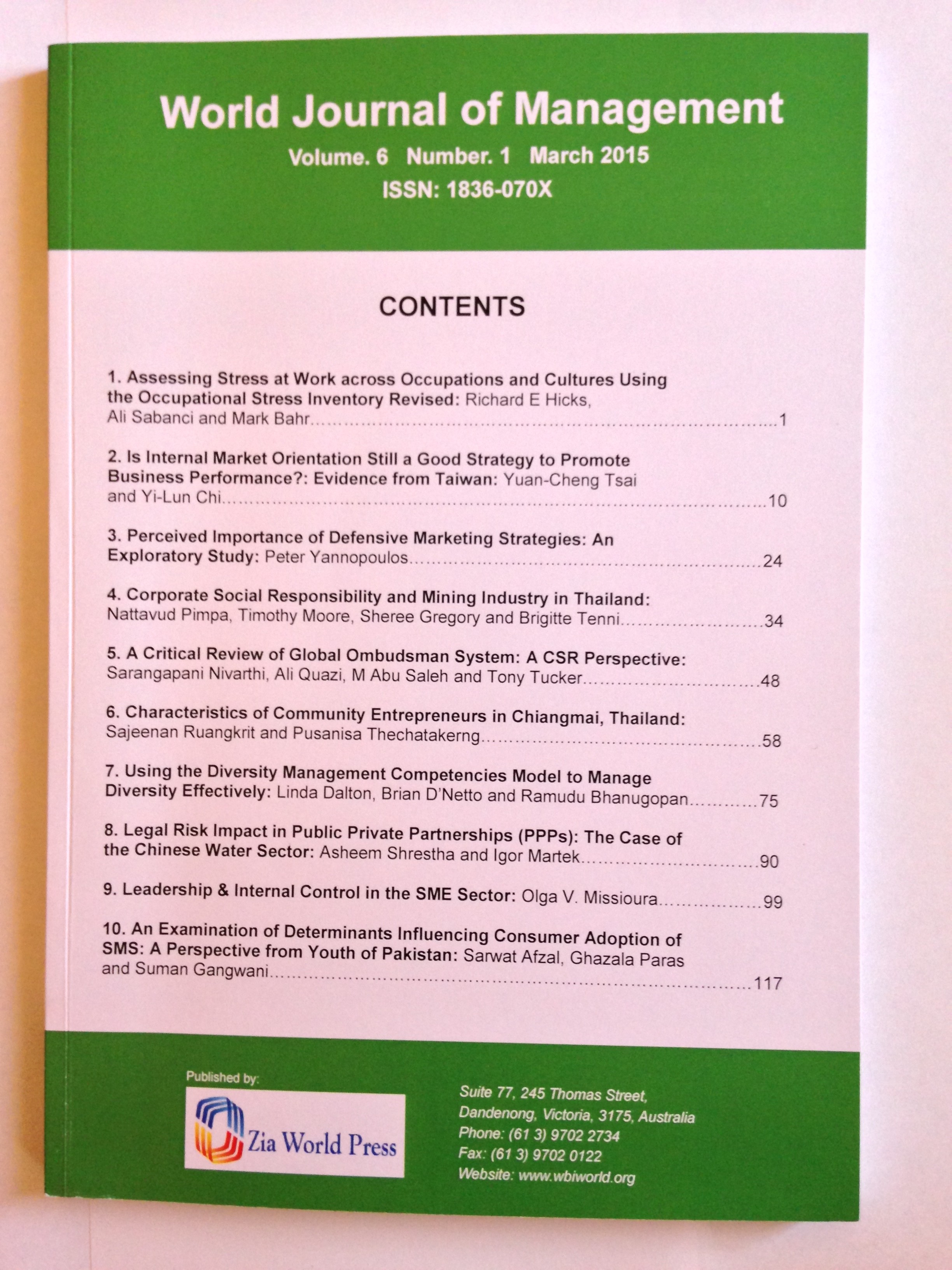Pages
1 – 13
The aim of this conceptual paper is to propose pathways through which psychological contract breach, ethical leader behaviour, and supervisors’ fairness are related to employees’ attitudes, behaviours and wellbeing. The paper reviews extant literature and builds a logical framework depicting the interrelationships among psychological contract breach, ethical leader behaviours, and supervisors’ fairness, and how they are related to employees’ attitudes, behaviour and wellbeing. Initially, we propose a direct effect of psychological contract breach on job satisfaction, job neglect, organisational citizenship behaviour, intention to leave and employee wellbeing. We also propose that ethical leadership behaviour and supervisors’ fairness will moderate the relationship between psychological contract breach and employees’ attitudes, behaviour and wellbeing. Based on the proposed conceptual framework, the paper proposes several testable research propositions. Finally, the paper outlines steps to advance organisational theory in regard to the effects of psychological contract breach, ethical leader behaviour and supervisors’ fairness on employee outcomes.

